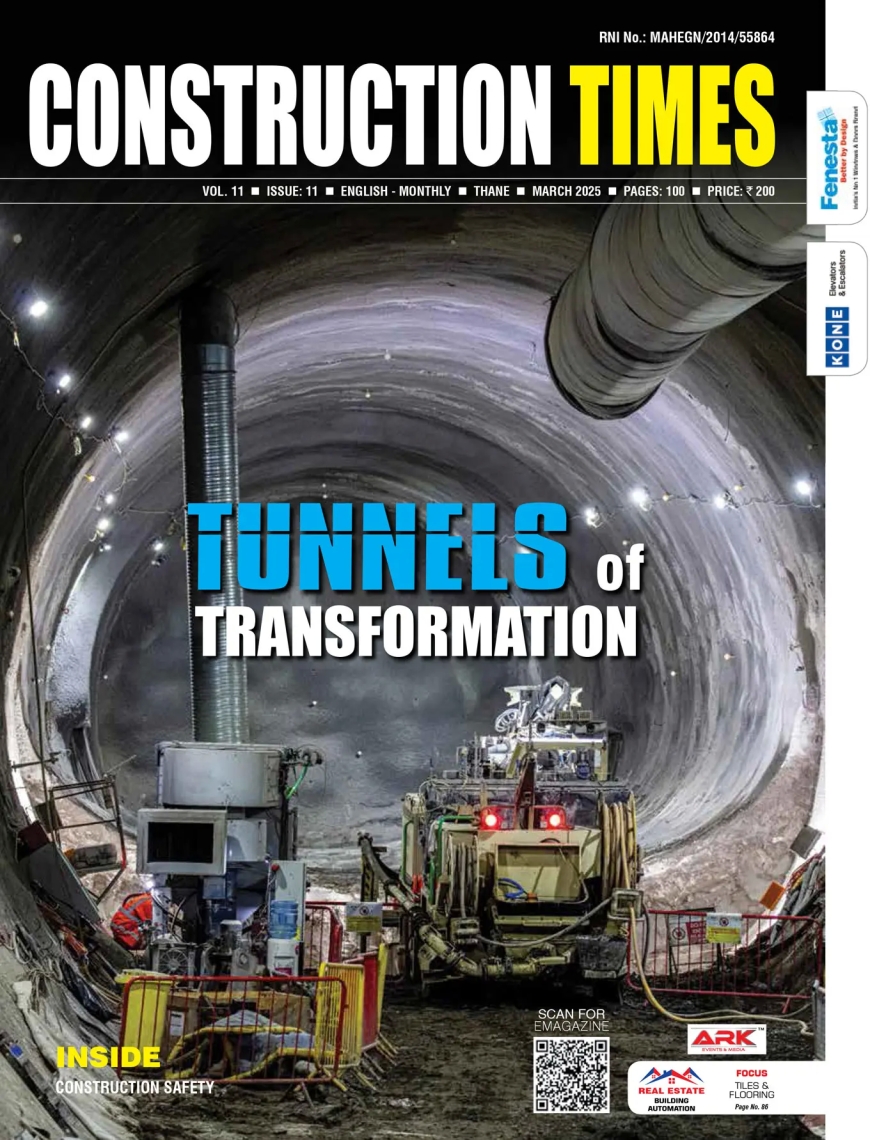Reduce Water Wastage through Smart Water Meters.
Amit Vaidya Director, India - Metrology Business Sensus, a Xylem brand India's residential water usage: concerns and its impact on future water supply: Covid-19 Impact. Estimates indicate that a whopping 60 million litres of water are lost every day owing to the water pipe leakage and bursts. Since a good


Amit Vaidya Director, India - Metrology Business Sensus, a Xylem brand
India's residential water usage: concerns and its impact on future water supply: Covid-19 Impact.
Estimates indicate that a whopping 60 million litres of water are lost every day owing to the water pipe leakage and bursts. Since a good section of the Indian housing complexes don't meter their individual resident's water usage, the bill is generated by dividing the total cost with the number of households, regardless of the quantity of the water used or the number of members occupying a single flat. In such circumstances, it is hard to gauge water over usage and coming along as an irksome issue, if few households use water in excess, all the residents in an apartment complex have to endure the same through bill though their water usage is relatively minimal, hereafter, increasing the insensitivity towards water consumption. To make up for the shortfall, it's critical to move beyond the flawed mechanical and manual meters and adopt the technologies which help bring down costs, offer the readings in real-time, and prevent water wastage by detecting leaks based on water usage patterns.
By 2030, the overall demand for water in India is estimated to be double and 40% of the population will have no access to clean drinking water according (Source: Composite Water Management Index). The consistent increase in the overall population with a substantial rise in residential apartments is leading further to an increase in demand for water. It's all the more critical now to address the challenges like low water pressure, old infrastructural set up in terms of pipelines in the residential areas and the best way to do is to deploy smart water infrastructure that ensures accurate, real-time data monitoring and enhance the water distribution network and embrace water conservation practise.
Impact of inadequate water supply & distribution on Real Estate housing market and construction
According to the water resources ministry, the per capita water availability in our country currently stands at 1545 cubic metres when 1700 cubic metres is considered as water stressed. While on one hand, the construction of projects can come to a halt with no adequate water supply, on the other hand, homebuyers are can in the long run refrain from investing in properties where the lack of good water supply/facility is expected. With Govt.'s increase in infrastructure development expenditure by 20.9%, on-going smart cities mission, and residents of metro cities reinforcing the purpose and necessity of owning a home - construction industry will surely be looking towards a formidable positive outlook in coming months. India's real estate sector is projected to hit a market size of US$ 1 trillion by 2030, from US$ 120 billion in 2017 to 13% of its GDP by 2025. Retail, hospitality, and commercial real estate are also growing significantly, providing India's growing needs with the much-needed infrastructure.
As we speak of all this growth, we cannot rule out the concern that in our country, over 600 million people face water shortages nationwide and 2,00,000 die each year from inadequate water supplies, according to the NITI Aayog report. As newer constructions come in, the need for freshwater and sanitization will become more of a necessity for subsistence. If unheeded, the construction industry, real estate developers altogether will have to bear the impact of the same. Hence, addressing water issues faster and mapping appropriate water usage can really help dwellers to reduce their overall water consumption by 35-40%. If individuals are conscious of their usage and pay for what they consume, there will be an immediate behavioral change to bring down the consumption and that is where smart water infrastructure plays a key role.
Key ways Static Smart water Meters can address real water challenges in Residential and Housing complexes
- Rapid leakage detection - Smart water meters enable the utilities to detect leakages in the pipeline and reports water consumption data with a timestamp to the utility. Leakage, apparent losses, and rising NRW has been a major concern for Indian utilities and by deploying smart water meters, utilities would be able to detect such leaks and leads to the drop in the water wastage.
- Minimizes water wastage - With the use of smart water meters, customers are able to identify consumption patterns and inefficiencies, allows them to keep a track of the timing and amount of the water they consume every day, in such way, error free bills can be generated and helps in reducing water wastage by 40% water every month.
- Remote monitoring of water consumption - Smart water meters play a significant role in helping consumers gain a realistic picture of their actual water consumption on a real-time basis. Consumers can also observe consumption patterns that can assist in identifying areas where they could conserve water unlike manual meter readings. It is designed to streamline water usage by adjusting water consumption to meet pre specified water conservation efforts.
- Improves billing efficiency - Majority of the Indian housing, complexes don't have the mechanism to track water consumption of the residents individually and hence they are charged at a fixed flat rate. Even though the water usage is different for each household, the bill is calculated by dividing the number of families with the total amount for apartments in the complexes which results in high charges when most of the residents pay for other's water consumption as well. Smart water meters can address this concern and track individual usage leading to transparent billing by utilities.
- Enhances water conservation efforts - With the deployment of the smart water meters, different households can pay exactly for their respective consumption. The meters canprovide remote precise reading, help detect water pipe leakage early and reduce NRW (non-revenue-water)/apparent losses, generate efficient billing, better revenue collection for utilities and create awareness among people to use water judiciously adding more minds and hands to sensible water conservation efforts.
Govt. initiative towards Smart Water Infrastructure Management
Taking cognizance of the growing need and significance of Smart Infrastructure, PM Narendra Modi launched the 100 smart cities mission with the objective of leveraging the existing technology to build the next generation of cities, that is, accessible and affordable. On the lines of the Swachh Bharat Abhiyan, the Government has also introduced the 'Jal Shakti' and HarGharJal mission that is aimed at providing clean drinking water which encouraged water conservation and security in 1592 water stressed blocks in 256 districts in the wake of an acute water crisis in the country.
A study by Jadavpur University in 2016 found that water consumption in typical urban constructions of India was in the range of about 27-kilolitres per sq m of the total built-up area. The embodied water of significant building materials was in the range of 25.6 kl/sq m, while the water consumed during the actual construction was two kl/sq m. The study stressed on the need for greater water vigilance and judiciousness at the stage of material production, whether it is during the making of bricks, steel or other construction material.
Considering water is used at every stage of construction, especially so in the production of construction materials and that the growing population will activate the requirement for better building, residential complexes, commercial estates and industries and water supply and availability will continue to play a key role in processing all of these, it's time that advanced smart water infrastructure management are incorporated.
The Way forward for the Smart Water Infrastructure for India's Real Estate and Construction industry
By 2020, several prominent cities will exhaust their groundwater resources which accounts for 40% of the country's water supply which has been depleting exponentially for years. With the present state of consumption and depletion of natural resources, it becomes important to address the issue, pertaining to the availability of safe drinking water to ensure to create awareness amongst the people and more so for India where the government aims to deliver Smart Cities mission to promote sustainable and inclusive cities that provide infrastructure, adequate water supply, and the standard living of life to its citizens.


Hits: 403
















